- Home
- Roger Taylor
The waking of Orthlund tcoh-3 Page 9
The waking of Orthlund tcoh-3 Read online
Page 9
Loman recalled the force with which he had struck the wall.
‘Threw me out?’ he said softly. ‘I don’t understand. I must have jumped, surely.’
Gulda shook her head. ‘Nothing can escape the laby-rinth if it chooses to hold them,’ she said. ‘It could have trapped you there to starve to death, driven you mad, killed you outright before you could even sense the threat, even reached out and… ’ Loman went white, and Gulda stopped. A brief look of self-reproach passed over her face.
‘Hawklan didn’t tell you, did he?’ she said.
Loman shook his head. ‘He just showed me the path and helped me learn it. Perhaps he didn’t know what it could do. He wouldn’t ask me to face a danger I didn’t understand.’
Gulda nodded. ‘Perhaps,’ she said, absently. ‘Who knows where his knowledge comes from? Or what fatal gaps it contains.’ Then she fell silent, staring pensively down at the floor.
‘But what happened, Memsa?’ Loman ventured after a while, adding, with increasing force: ‘I was on the path. I did nothing unusual. Why should it… attack me? Aren’t you concerned? We can’t get back into the Armoury now.’
Gulda remained motionless. ‘It heard something,’ she said faintly. ‘As did I. Something neither of us have heard for a long time. I trembled, it acted. My response was too slight, its perhaps too strong. I doubt either will happen again.’
Loman frowned and bit back his first response. ‘Memsa, I don’t understand what you’re saying,’ he managed.
Gulda turned to him slowly. ‘I think perhaps Hawk-lan has met Dan-Tor, Loman,’ she said. ‘And, I fear, has been assailed by him.’ She raised her hand to forestall any questions. ‘I know no more.’
Loman’s frustration burst out. He stood up, his chair scraping noisily across the floor. ‘How can you say something like that, Memsa, and then not expect me to ask about it?’ he said angrily.
Gulda winced briefly at the force of his appeal, then swinging her stick up, levelled it at his chest. ‘Lower your voice and lower your backside, young Loman,’ she said sternly. For an instant, Loman felt an urge to dash the stick to one side. Gulda’s eyes narrowed and her head tilted again as if she were listening for something. Then she lowered the stick and, stooping heavily, walked over to a large chair opposite the window.
She pulled up the hood of her gown so that her face was completely hidden, then leaned back and stared out over the ridges and towers of the castle, bright in the summer sun, her stick laid across her knees.
‘Loman, I must think,’ she said, her voice uncharac-teristically soft. ‘I can’t answer any of your questions. Truly. Go back to the Armoury. You’ll find the labyrinth is open again. It knew enough not to kill you, or even darken your soul. You’ll be safe. Trust me.’
Loman hesitated. ‘But Hawklan…?’ he said.
Gulda made a slight movement with her hand, part dismissal, part plea.
‘Please, Loman,’ she said. ‘Do as I ask. Then go out into the wind and light and renew yourself.’
Loman looked at her, now motionless and silent. The memory of the figure he had seen when he first entered returned to him. He looked down at his hands and wondered if his carving skills could capture it. Suddenly he missed Hawklan and his brother.
‘Very well, Memsa,’ he said.
As he opened the door, Gulda said, ‘Loman, I think we too are assailed. In your quieter moments, ponder your anger of late, and that of your people. We must be eternally watchful with these old skills we’re re-learning.’
Loman paused. The comment stirred unspoken concerns of his own. ‘I will, Memsa,’ he answered quietly. ‘I will.’
Chapter 7
Dilrap walked wearily along the quiet, almost deserted corridors of the Palace’s private quarters. He looked down at his errant robe. It was grimed with dust. As were his hands. As was everything, he reflected. It would be pleasant to bathe, albeit briefly, and then rest safe in soft sheets and soft darkness even if it was only an hour or so until dawn. His fatigue overrode his fears about what kind of a day he might waken to. Whatever future lay ahead, this day was one he could take some pride in. He had helped the Lord Eldric and Jaldaric escape and been instrumental in helping the people of Vakloss recover themselves and draw some semblance of order out of the chaos that Dan-Tor had unleashed on them. Further, he had managed to take a small step away from his own destruction and into the service of Dan-Tor by a combination of his organizing skills and an unexpected confrontation with Urssain.
Head down and preoccupied, as he turned the cor-ner that would bring him to his own rooms he almost tripped over two men who were lying asleep on the floor. One was leaning against the wall, mouth agape, and holding the head of the other in his lap. They made an incongruous sight, looking to Dilrap like large, dirty children picnicking in a forest and, despite his tiredness, he smiled.
As Urssain had originally feared, a great many ‘in-truders’ had indeed entered the Palace, and were now to be found sleeping in a variety of places and postures. They were a mixture of exhausted helpers, sleeping wherever they found themselves when fatigue overtook them, and those frightened and homeless who had not yet been drawn into the gentle nets of order that Dilrap had been casting over the City.
Several times through the day, uncertain of his role in the work being undertaken, Urssain had pestered Dilrap about ‘all these people, wandering about’. Finally, in exasperation, Dilrap had hissed at him: ‘All these people, as you call them, are Fyordyn citizens, not thieves and robbers. The Palace is as safe with them as it is with some of your guards. Just make sure the Throne Room and the Ffyrst’s quarters are guarded.’ Then, very softly, ‘And wherever you’ve put the King’s body.’
For a moment he thought he had gone too far, but driving his nails into his palms, he held Urssain’s gaze, tempering the bluntness of his words with a look of pleading urgency in his eyes. It had worked, but Dilrap had reminded himself to win no more such victories for the time being. Very soon his value would become less evident and small acts of defiance such as that could then float to the surface to wreck the fragile vessel of his survival.
Looking down at the two sleeping men, it occurred to him that he should seek a very public opportunity to thank amp;mdashno, praise amp;mdashCommander Urssain and his men for their vital contribution to today’s rescue efforts. That should smooth down any ruffled pride and also assure Urssain that the Honoured Secretary knew his place. He nodded to himself. That would be something for tomorrow. Sometime perhaps when the Rede and the Guild Master and a few senior officers were present.
As Dilrap tucked the thought away, an eye cracked open in the dusty face of the man leaning against the wall. Its partner joined it almost immediately. Neither showed any sign of a confused and unexpected awaken-ing and, momentarily, Dilrap found his own taunt returning to haunt him amp;mdashthieves and robbers?
In the heightened awareness of his intense fatigue, Dilrap felt the man take in his total surroundings with a flicker of pretended bewilderment. Then the second man was awake, and both were standing. Again they showed no sign of fatigue. Dilrap stepped back uneasily. His first question was to have been, ‘Who are you?’ but instead he said, ‘I’m sorry I woke you, gentlemen. Settle down again if you can, it’s still a couple of hours to daybreak and you look as if you need the rest.’
Without speaking, but with a friendly nod, one of the men, yawning and scratching, walked into the junction of the corridors that Dilrap had just come round. He looked casually from left to right, then turning, he glanced significantly at his companion. Dilrap found his alarm mounting though neither of the men seemed to offer any particular menace.
Before he could clear his thoughts, the first man spoke. ‘Honoured Secretary, we must speak to you urgently.’
Dilrap was flustered. ‘If it’s about working parties… ’ he began, gesticulating vaguely in the direction he had just come. The man shook his head and, taking Dilrap’s arm, gently ushered him towards his room.
He spoke again, softly and calmly, but very clearly and urgently. ‘Honoured Secretary, we’re Goraidin in the service of Lord Eldric. We know you’re to be trusted and we need your help.’
Despite himself, Dilrap twitched and hitched up his gown, his fatigue and the shock of the man’s words making him feel disorientated. ‘I don’t understand,’ he said. ‘What are you talking about?’
There was a brief flash of impatience in the man’s eyes, and the grip on Dilrap’s arm became more urgent. ‘Honoured Secretary. We’ve no time for niceties. Suffice it to say that we were with the group that released Lord Eldric and the others from the Westerclave and got them to Lord Eldric’s estate. It was the Queen herself who told our commander that you’d been her great support and were to be trusted.’ Dilrap’s mouth went dry. This was a trap! He had been betrayed! But no sooner had the thoughts occurred than he dismissed them. Neither Dan-Tor nor Urssain would now need to use such subtle tactics to expose his help to the Queen and the Lords.
They reached the door to his rooms and, opening it, he ushered the two men in. ‘What are you doing here?’ he said as he closed the door and gently threw the bolt. ‘Who’s sent you? What do you want?’ Then, as one of them started silently opening the other doors in the room, and peering through them, he added, ‘There’s no one else here.’
The man nodded and completed his search.
The first waker looked at Dilrap searchingly, causing him to remember that one of the functions of the Goraidin was the assassination of the enemy’s senior officers. Again however, he dismissed the thought. What would killing him gain for anyone? Certainly nothing that valuable soldiers such as the Goraidin would be risked for. No, these were brave men, and in need. They were no threat to him and he must help them if he could.
Another sinister memory came to him, and he waved his hand anxiously as if to erase his questions. ‘No, no. Don’t tell me anything about yourselves,’ he said. ‘I won’t be able to keep any secrets from the creature that Dan-Tor has become if he seeks to look for them.’
The two Goraidin exchanged glances; the remark both surprised and impressed them. ‘Very well,’ said the first. ‘No names, nor any reasons why we came here originally, but now, after what’s happened, we have to get everyone away while we can.’
‘Everyone?’ Dilrap interrupted.
‘The King, the Queen, the Lord Eldric. Perhaps his son, perhaps you,’ said the Goraidin without pause.
Dilrap put his hand to his head. This was the second time these people had struck into the very heart of Dan-Tor’s domain to do him hurt. They were like water running through a mailed fist. There was so much hope in such people and such deeds. Another small inspira-tion to help him through darker days.
‘Events are moving too quickly for you, Goraidin,’ he said sadly, then briefly he told them the events of the day, his voice relentless and matter-of-fact to prevent their interrupting and to cover his own emotions. ‘You’ve done all you can do here,’ he concluded. ‘Take this news back to the Lords, and delay for nothing.’
As the tale unfolded, the men became increasingly agitated although they remained silent. When it was finished however, one of them burst out, ‘It can’t be true.’
Dilrap rounded on him angrily before he could continue. The reliving of the day had harrowed him. ‘Take the message, Goraidin,’ he said, glaring at his doubter. ‘Let others judge its worth. I saw what I saw. Why should I lie about such things? What was Dan-Tor is now Oklar, the worst of Sumeral’s Uhriel. Our King rose up whole and sound to oppose him, and was cut down for his pains.’ His face distorted as the emotion of the events started to overcome his fatigue. ‘Damn you both. I’m frightened enough as it is without having to argue with those I’m trying to help. The man is Oklar. I know it’s against all reason. I know these are children’s tales, but our King named him in his death throes, and I’ve looked into his eyes.’ He struck his chest in emphasis then, angry again, he pointed in the general direction of the destruction at the front of the Palace. ‘And could a man have done such a thing to our city?’
One of the Goraidin laid a hand gently on his shoul-der. ‘We don’t doubt you, Honoured Secretary,’ he said. ‘Other things have happened elsewhere that confirm what you say. It’s just that your news was a shock amp;mdasha terrible shock. We understand what you say and we’ll carry your message faithfully, don’t worry about that. Just tell me what the King said again. It made no sense.’
Dilrap repeated the King’s last words.
‘Nothing shall end the reign of your Master?’ said the Goraidin, echoing Dilrap’s words and shaking his head. ‘That’s a grim prophecy for us all if it was some vision of the future. What did he mean?’
Dilrap shook his head. ‘I don’t know,’ he replied. ‘He did say his words weren’t what they seemed. And there was no despair in his voice. Just a kind of… bitter… dark amusement. And he was laughing even as he died, and that creature was powerless under his gaze… it couldn’t move.’ He frowned. ‘It’s beyond me. I’ve told you, leave it to others. Just tell the tale as I’ve told you. Tell everything as I’ve told you. Now go while you can.’
His tone was final and the men were still for a mo-ment, uncertain. Then they moved to the door.
‘Shall we take you with us?’ said the first man, turn-ing back to Dilrap.
‘No,’ said the Secretary shaking his head slowly. ‘I promised the King I’d stay. I can do more here than anywhere else. Besides, this is all I know. Find me again when you need me. I’ll do what harm I can here and I’ll tell you whatever I learn.’ Then, looking into the man’s eyes, ‘But tell me nothing that would endanger others if you can avoid it. I don’t know how much time I have.’
Distress showed on the Goraidin’s face. Dilrap looked at him. ‘Tell the Queen about Rgoric gently,’ he said. ‘And tell her her husband died his true self. Quite free of his old foe, and fighting him to the end. Mocking him, in fact.’
Then the Goraidin were gone and Dilrap was alone in the silence of his room. Fatigue closed in on him again to damp down the exhilaration that he felt at this contact with the forces who would oppose Dan-Tor.
Turning, he caught a glimpse of himself in a mirror and shied away from the sight. Though no lover of his own image at the best of times, the bleary-eyed vision that he had glimpsed seemed to be an unnecessarily cruel caricature and he shook his head in a momentary surge of self-pity. His robe slipped awkwardly from his shoulder and resignedly he hitched it up.
‘Shall I do something with that robe of yours, Dil-rap?’ Alaynor had said to him, only a few hours previously when a hasty gesture on his part had swept a table clear of plans and papers. The remark had been made quietly and gently and was sincerely meant. At the time, he had fobbed it off with a friendly gesture. Now it seemed to be more significant for some reason. He slipped his robe off and, holding it at arm’s length, examined it critically. It was a traditional garment and wholly inappropriate for his portly figure, indeed it had been the bane of his life since he came to office. However, to continue to wear it would be to show that threads of the old ways persisted while still showing him to be the same old harmless Dilrap. But would that serve his needs? The threads of the old ways would surely be ruthlessly cut as time passed, and would there be a place for harmless ditherers in the New Order? Probably not, he decided. Chillingly, he realized that part of his worth in the future would lie in the assessment of how troublesome and inconvenient his removal would be.
For the first time in his life, he looked at the robe with affection. Then, laying it down on a table, he folded it carefully. The duty of the King’s Secretary lies in his heart not in his clothes, he thought. He would give it to Alaynor, to ‘do something with’, then he would lay it aside until it could be worn with renewed dignity and honour at some future time.
* * * *
Isloman stood very still. The two arrows still quivering slightly in the nearby tree were sufficiently close together to show that the archer knew
his craft. Although he had no idea where the man was, he might have risked a sudden dive for cover had he been alone, but with the Queen and Hawklan in his charge, that was out of the question.
Gavor moved discreetly into his line of sight and, cocking his head on one side, raised his spur-clad wooden leg in a gesture both incongruous and menac-ing. Isloman shook his head almost imperceptibly and mouthed, ‘Not yet.’ Not until he knew more precisely what they were dealing with. Gavor retreated and Isloman caught a glimpse of his black shadow rising up through the trees beyond.
Slowly and carefully he raised his hands in the air. ‘Muster lady,’ he whispered, very softly. ‘Do you know these cockroaches? Can you talk us out of this?’
‘I’m their Commander-in-Chief, for what it’s worth,’ came an uncertain reply from behind him. ‘But I don’t know how I can explain our being here. They’ll almost certainly want to escort us back to Vakloss.’
‘It doesn’t matter,’ Isloman said. ‘Just pull rank and keep talking. We’ll see what turns up.’
‘Don’t shoot,’ he shouted. ‘We’re lost. We mean no harm, and we’ve nothing worth stealing.’
There was a brief pause, then, ‘Put your club down and walk towards my voice, slowly.’
‘What about the horses?’ Isloman shouted. ‘We’ve an injured man here.’
‘Let the other fellow lead the horses,’ came the reply. ‘You keep well to the front, and keep your hands up.’
Slowly and conspicuously Isloman replaced his club in his belt, at the same time surreptitiously loosening his sword. Without comment, the Queen took Serian’s reins from him.
Isloman soon saw their attacker. His brow wrinkled slightly. The man’s position was worrying. To anyone without the sight of an Orthlundyn carver, he was well hidden; part way up a tree, but securely balanced, with a good field of fire, and yet able to abandon his position at speed if need arose. And his ability to shoot straight and with discretion was already proved. If the others in this patrol were as well trained, it would be difficult to find opportunities for escape.

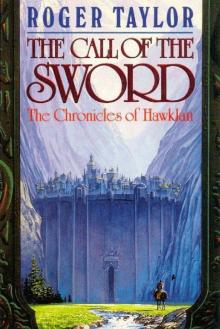 The call of the sword tcoh-1
The call of the sword tcoh-1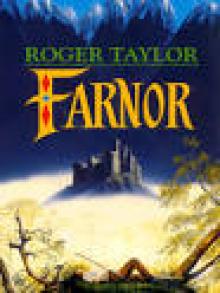 Farnor
Farnor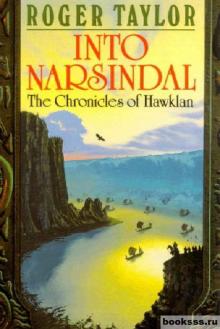 Into Narsindal
Into Narsindal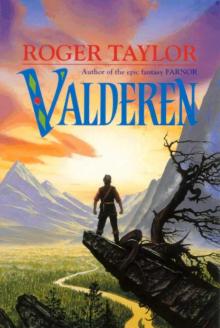 Valderen ft-2
Valderen ft-2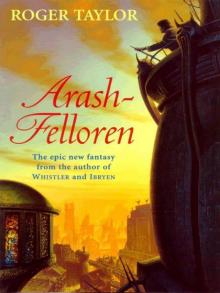 Arash-Felloren
Arash-Felloren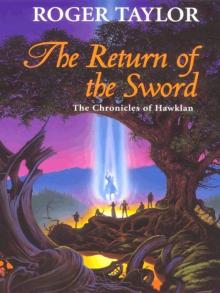 The Return of the Sword tcoh-5
The Return of the Sword tcoh-5![Ibryen [A sequel to the Chronicles of Hawklan] Read online](http://i1.bookreadfree.com/i1/03/26/ibryen_a_sequel_to_the_chronicles_of_hawklan_preview.jpg) Ibryen [A sequel to the Chronicles of Hawklan]
Ibryen [A sequel to the Chronicles of Hawklan]![The Call of the Sword [Book One of The Chronicles of Hawklan] Read online](http://i1.bookreadfree.com/i/03/24/the_call_of_the_sword_book_one_of_the_chronicles_of_hawklan_preview.jpg) The Call of the Sword [Book One of The Chronicles of Hawklan]
The Call of the Sword [Book One of The Chronicles of Hawklan]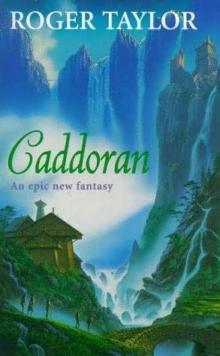 Caddoran
Caddoran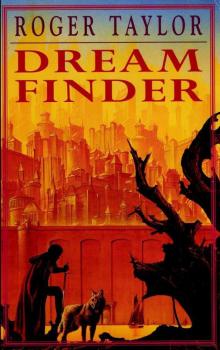 Dream Finder
Dream Finder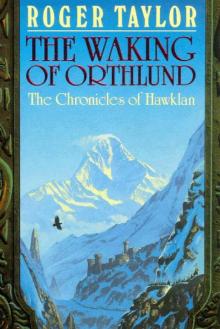 The Waking of Orthlund
The Waking of Orthlund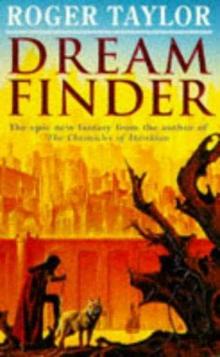 Dream Finder cohs-1
Dream Finder cohs-1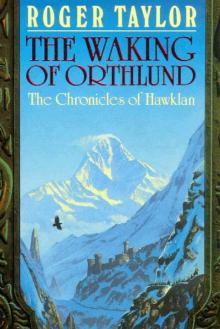 The waking of Orthlund tcoh-3
The waking of Orthlund tcoh-3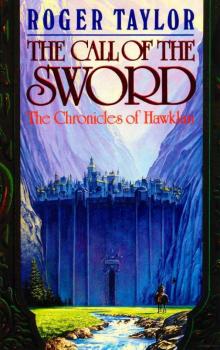 The Call of the Sword
The Call of the Sword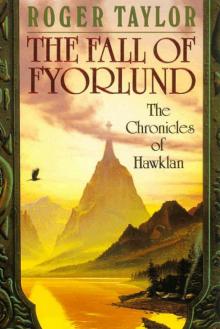 The fall of Fyorlund tcoh-2
The fall of Fyorlund tcoh-2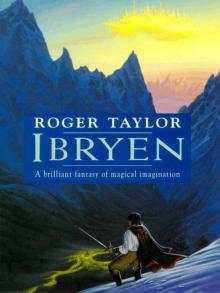 Ibryen
Ibryen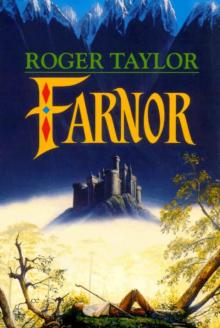 Farnor ft-1
Farnor ft-1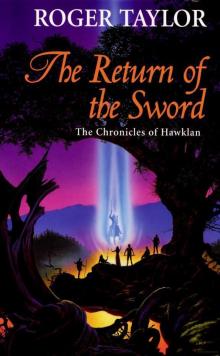 The Return of the Sword
The Return of the Sword![Into Narsindal [Book Four of The Chronicles of Hawklan] Read online](http://i1.bookreadfree.com/i2/04/06/into_narsindal_book_four_of_the_chronicles_of_hawklan_preview.jpg) Into Narsindal [Book Four of The Chronicles of Hawklan]
Into Narsindal [Book Four of The Chronicles of Hawklan]![Valderen [The Second Part of Farnor's Tale] Read online](http://i1.bookreadfree.com/i2/04/05/valderen_the_second_part_of_farnors_tale_preview.jpg) Valderen [The Second Part of Farnor's Tale]
Valderen [The Second Part of Farnor's Tale]![The Fall of Fyorlund [Book Two of The Chronicles of Hawklan] Read online](http://i1.bookreadfree.com/i2/04/08/the_fall_of_fyorlund_book_two_of_the_chronicles_of_hawklan_preview.jpg) The Fall of Fyorlund [Book Two of The Chronicles of Hawklan]
The Fall of Fyorlund [Book Two of The Chronicles of Hawklan]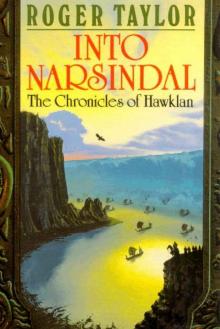 Into Narsindal tcoh-4
Into Narsindal tcoh-4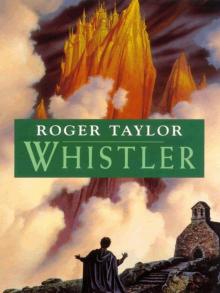 Whistler
Whistler![Whistler [A sequel to The Chronicles of Hawklan] Read online](http://i1.bookreadfree.com/i2/04/12/whistler_a_sequel_to_the_chronicles_of_hawklan_preview.jpg) Whistler [A sequel to The Chronicles of Hawklan]
Whistler [A sequel to The Chronicles of Hawklan]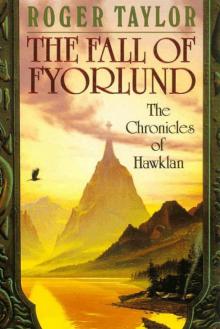 The Fall of Fyorlund
The Fall of Fyorlund![The Waking of Orthlund [Book Three of The Chronicles of Hawklan] Read online](http://i1.bookreadfree.com/i2/04/11/the_waking_of_orthlund_book_three_of_the_chronicles_of_hawklan_preview.jpg) The Waking of Orthlund [Book Three of The Chronicles of Hawklan]
The Waking of Orthlund [Book Three of The Chronicles of Hawklan]